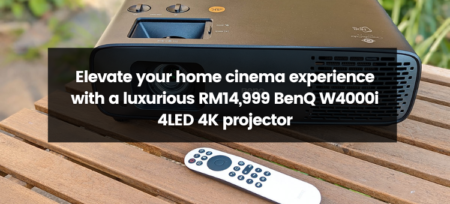The decision to buy a projector or a TV depends on your specific needs, preferences, and the intended use of the display device. Both projectors and TVs have their unique advantages and disadvantages, and understanding these factors will help you make an informed decision. Here are some considerations to keep in mind when choosing between a projector and a TV:
Screen Size and Viewing Experience:
If you desire a large cinematic experience with a massive screen, projectors are the way to go. They can project images on a screen or a blank wall, allowing for screen sizes that are much larger than even the largest TVs.
TVs, on the other hand, come in various sizes, but their screen size is limited to the physical dimensions of the TV. If you have limited space or prefer a more standard-sized screen, a TV may be more suitable.
Image Quality:
Both projectors and TVs can offer high image quality, but there are some differences to consider. TVs generally have higher pixel density and can offer more vibrant colors and deeper contrasts, especially in high-end models with OLED or QLED technology.
Projectors can also provide excellent image quality, especially with 4K UHD projectors. However, ambient lighting can affect the perceived image quality on a projector, so controlling room lighting is crucial for the best experience.
Room Environment:
Consider the lighting conditions in the room where you’ll be using the display. If you have control over ambient lighting and can achieve a darkened room easily, a projector can perform exceptionally well.
TVs, on the other hand, are less affected by ambient lighting and can deliver consistent picture quality in various lighting conditions.
Portability and Flexibility:
Projectors offer more flexibility in terms of portability. You can easily move a projector from one room to another or even take it outdoors for movie nights, making it ideal for those who want versatility in their setup.
TVs are stationary and usually require more effort to move and set up in different locations.
Sound Quality:
Many modern TVs come with built-in high-quality speakers, providing good audio output without the need for additional sound systems.
Projectors might have built-in speakers too, but the sound quality is generally not as impressive. For a truly immersive experience, you might need to invest in external speakers or a soundbar.
Cost:
TVs generally come in a wide range of prices, from budget-friendly options to high-end models with advanced features. They are typically more affordable than projectors, especially when considering larger screen sizes.
Projectors can be more expensive, especially if you opt for high-resolution models or those with advanced features like lens shift or motorized zoom.
Ultimately, the decision between a projector and a TV depends on your personal preferences, budget, and the specific requirements of your entertainment setup. If you prioritize a large screen size, cinematic experience, and portability, a projector might be the best choice. On the other hand, if you value superior image quality, a consistent viewing experience in different lighting conditions, and built-in sound options, a TV could be the better option. Consider your needs and do some research on specific models to find the perfect fit for your home entertainment setup.













